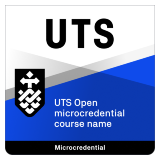This course is delivered in a scheduled format over 8 weeks (40 hours of learning in total). Each week, participants will attend an online session where they will have the chance to apply what has been learned, ask questions and hear from other participants who are taking the course.
The scheduled Zoom workshops are led by the course facilitator and will be conducted weekly on Tuesday evenings from 5.30pm throughout the course. All learning materials including interactive, preparative content will be made available in self-paced online modules.
The following topics will be covered during the course:
- Organic chemistry basics
- Functional groups and their importance for intermolecular interactions
- Introduction to vitamins and their industrial production
- Vitamin types, sources and biological functions
- Other types of dietary supplements, besides vitamins
- The concept of catalysis and common lab procedures to synthesize and isolate organic compounds for pharmaceutical manufacturing
- Enzymes as catalysts in industrial processes
- Analytical techniques in quality control.
Course delivery
- The webinar sessions for this course will be delivered on Zoom – the meeting link will be provided to enrolled participants via Canvas and email.


















